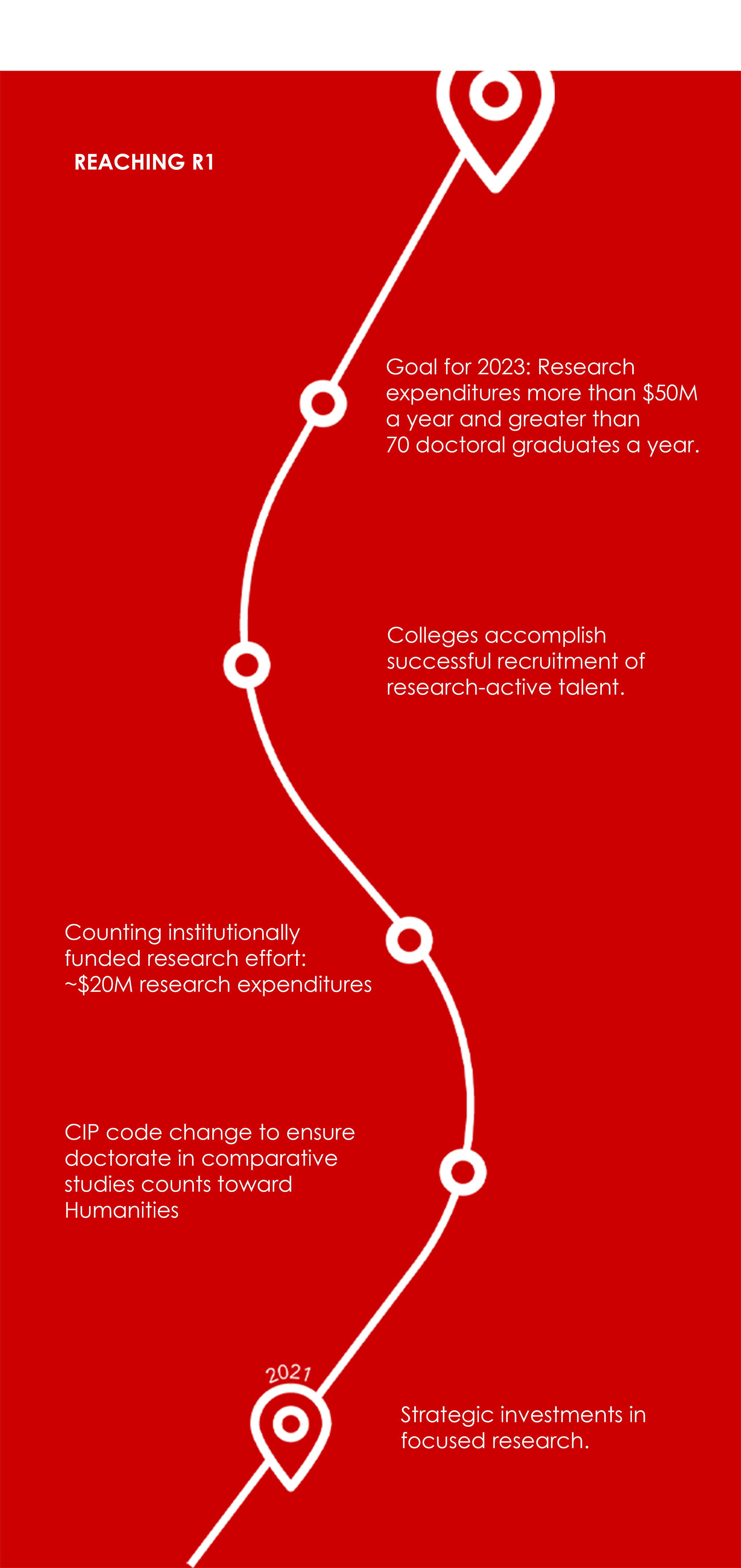What is the significance of R1/Tier One designation?
The R1 designation indicates a truly comprehensive university that spurs economic development, attracts high-quality students and faculty and increases external funding. R1 universities meet benchmarks in research, educational activity and vital research staffing, as measured by the Carnegie Classification of Institutions of Higher Education.
The classification measures universities across multiple indicators, including:
- Research expenditures in STEM and non-STEM fields
- Doctorates awarded in science, technology, engineering and math (STEM) fields; social sciences; humanities; and other fields with a research emphasis
- Forbes Media LLC
How do we get there in 2025?
Carnegie Classification of Institutions of Higher Education reviews existing R1 designations and new applications every three years. The next adjustment is expected in 2025. R1 universities will need to meet benchmarks in increasing research expenditures up $50M a year and 70 doctoral graduates a year. Florida Atlantic University will transition to R1 in 2025 based on 2023 levels of research expenditures of $67.25M and 125 doctoral graduates.


REACHING R1
Here's a look at the strategic tactics Florida Atlantic should put in place to achieve R1 status by 2025.
Goal for 2023: Research expenditures more than $50M a year and greater than 70 doctoral graduates a year.
Counting institutionally funded research effort: ~$20M research expenditures
CIP code change to ensure doctorate in comparative studies counts toward Humanities

